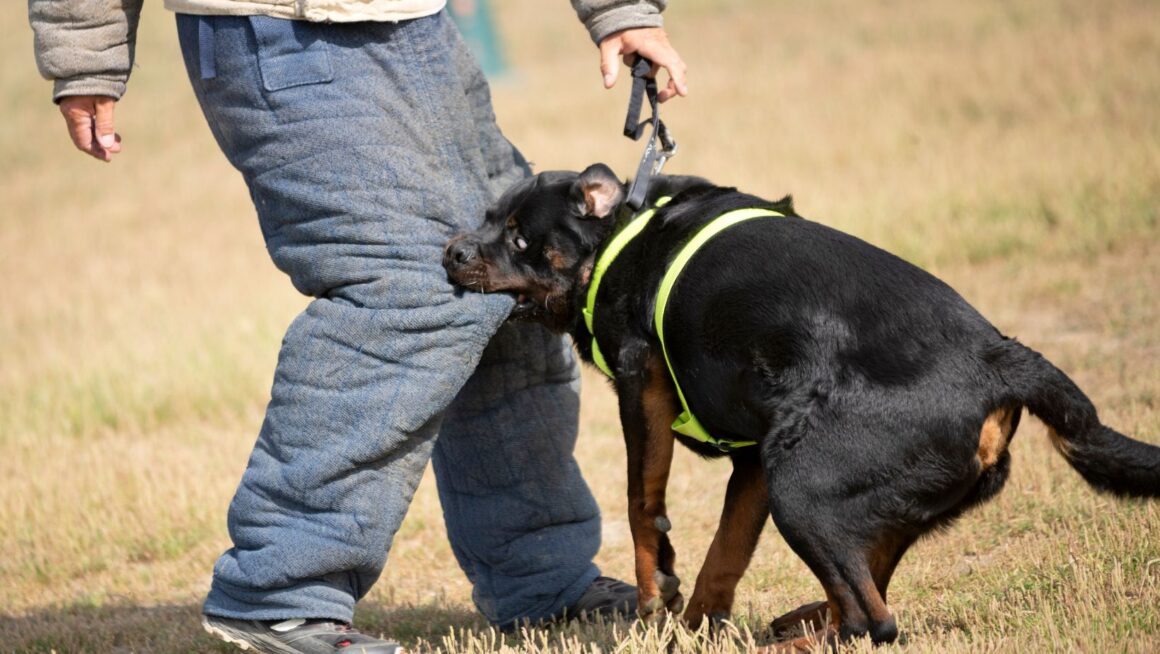Dog bites are a major cause of personal injury and can lead to serious infections if not treated properly. While some bites heal without complications, others can introduce harmful bacteria into the body. It’s, therefore, important to know the signs, risks, and steps to take after a dog bite.
Table of Contents
ToggleWhy Do Dogs Bite?
Dogs bite for several reasons, often as a reaction to their environment or emotions. Here are some common causes:
Instinctive Reaction
Sometimes, dogs bite as an instinctive reaction to triggers. For instance, if a dog is scared or threatened, it may react with violence. Dogs may also strike to protect someone or something they value.
Unlike people, dogs make decisions based on their training, experiences, and emotions. Therefore, it’s good to train them properly to reduce the risk of these reactions.
Pain and Sickness
Dogs may bite when they’re not feeling well. Generally, dogs want to be left alone when they’re ill and may growl or whine when someone comes close to them. If your dog is ill, you should warn children and visitors from coming close to your pet so as not to get bitten.
Play
Dogs, especially puppies, may bite accidentally when they’re playing. Such accidents are bound to happen, especially when the dog is playing with their favorite toy.
Even during play, being careful is still important when it comes to handling a dog. You should also warn guests and children not to play, particularly with large puppies and recently adopted shelter dogs.
Experience and Environment
A puppy’s environment shapes its personality and character. For instance, when a puppy is abused, neglected, and not trained, it can grow into an aggressive adult dog.
Therefore, if you adopt a dog from a shelter, you should enroll it in a training school or work on building good behaviors at home. You should also introduce the pet to various environments for socialization.
Who Is at Risk of a Dog Bite?
Anyone can be a victim of a dog bite, but dogs are more likely to attack children because kids may not recognize the dog’s warning signs and may play with it aggressively. Parents and dog owners should, therefore, teach children how to behave around dogs and watch them while they’re playing with pets.
Workers, like plumbers and electricians, are also at risk since they may work in places where dogs are unfamiliar to them. As a dog owner, it’s essential to train your dog to stay in one place when visitors are in your property.
What Are the Possible Complications of a Dog Bite?
Infection
The most common complication of dog bites is infection. That’s because a dog’s mouth contains different bacteria, such as:
• Staphylococcus
• Pasteurella
• Capnocytophaga
That said, you can easily get an infection if the dog bite breaks your skin. The risk of infection may be higher if you have a weak immune system.
An infected dog bite can cause serious complications if left untreated. Watch for these common symptoms of infection if you’ve been bitten by a dog:
- Swelling and redness around the wound
- Pain lasting more than 24 hours
- Pus or fluid drainage from the bite
- Difficulty moving the affected area
- Warmth around the wound
If the infection spreads to other parts of the body, you may experience:
- Fever
- Shaking or chills
- Night sweats
If you notice any of these signs, seek medical attention immediately to prevent further complications.
Nerve and Muscle Damage
A dog bite can cause nerve, muscle, and blood vessel damage in the area beneath the skin. This is possible even if the wound looks small. That’s why it’s good to have your wound checked by a doctor, even if you think it isn’t serious.
Broken Bones
A dog bite can result in broken bones, especially if the dog is large and powerful. A dog’s jaws can exert pressure, which can fracture or crush bones. This is especially possible in small children and the elderly, or if the bite lands on delicate areas like the hands, fingers, or forearm.
Rabies
Rabies is a viral disease that affects the central nervous system. It causes symptoms such as hallucinations, seizures, and paralysis.
If left untreated, it can cause death within a few days of being infected. You should get medical help if you’ve been bitten by a dog and you are unsure of its vaccination status.
Tetanus
You can also get tetanus from a dog bite, though it’s rare in the United States because most children are vaccinated against it. That said, a tetanus vaccine is only good for 10 years. So, if you aren’t sure yours is up to date, then you should get a booster immediately after the bite.
Scarring
If a dog bite opens the skin, it can lead to scarring. Mild scarring is usually temporary and will fade with time.
However, severe scars, especially on the face or other parts of the body, can cause permanent damage. In some cases, dog bites can cause pitted or raised scars, which may require medical treatments, such as grafting or plastic surgery.
Death
Dog bites can cause death, though it is rare. Most deaths from dog bites usually occur due to severe injuries, infections, or complications.
What Can You Do to Prevent Dog Bites?
According to the American Veterinary Medical Association (AVMA), most dogs bite when they feel threatened.
To reduce the risk of being bitten by a dog, follow these safety tips:
- Supervise children around dogs
- Teach children not to approach dogs when they are eating, sleeping, or taking care of their young.
- Seek permission from the owner before patting a dog, even if it looks friendly.
- Give the dog a chance to see and smell you before trying to touch it.
- Avoid touching a dog that is sick, scared, or has signs of aggression.
- Be cautious even with familiar dogs. Sometimes, dogs bite people they know, often as a reaction to fear, pain, or instinctive behavior.
Stay Safe and Know When to Get Help
Dog bites can have serious complications if left untreated. If a bite becomes red, swollen, or painful, don’t ignore it. Get medical attention right away.
The sooner you treat an infection, the less likely it is to cause serious complications. You should also be cautious around unfamiliar dogs, and if you ever get bitten, take immediate action to protect your health.






